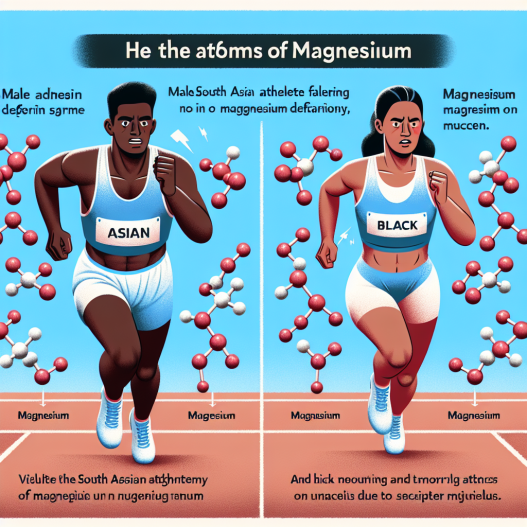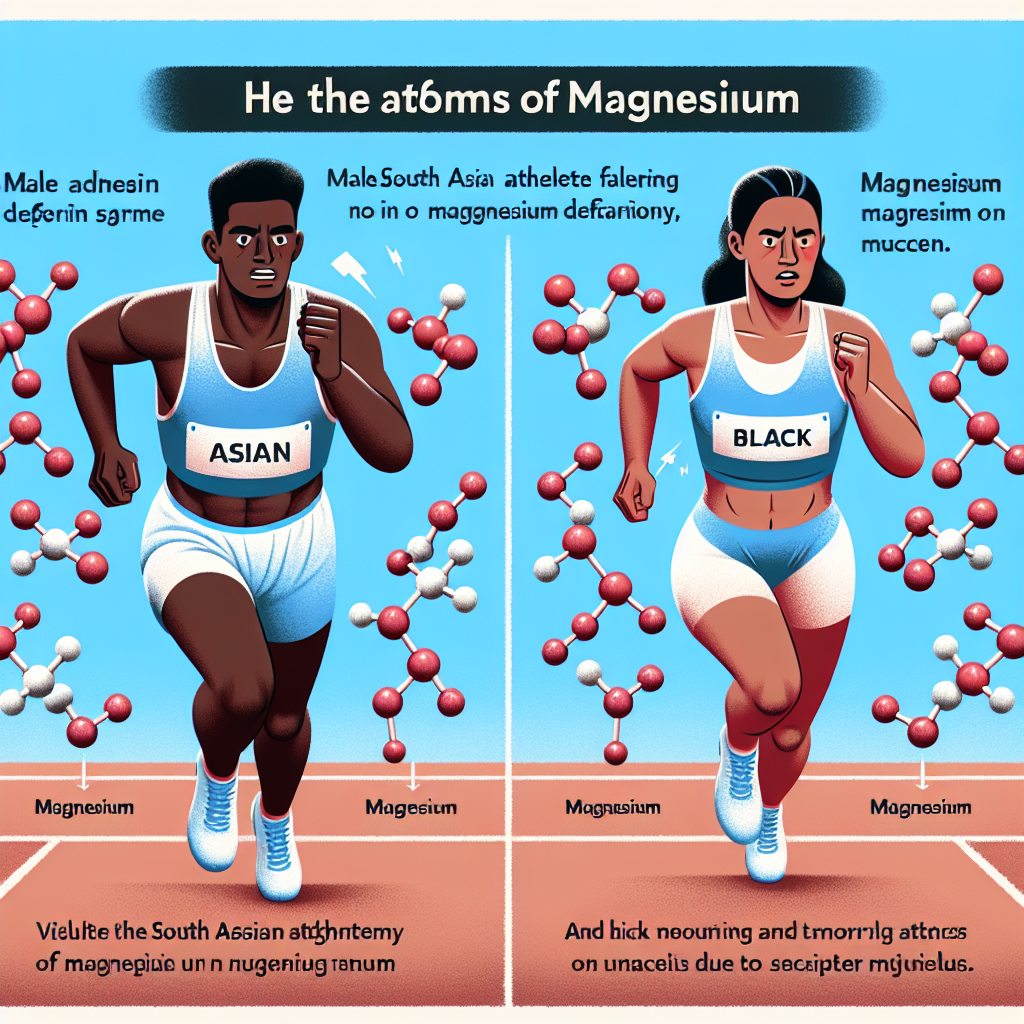-
Table of Contents
Magnesium Deficiency and Its Impact on Sports Performance
Sports performance is a complex interplay of various factors, including physical training, nutrition, and genetics. However, one often overlooked factor that can significantly affect athletic performance is magnesium deficiency. Magnesium is an essential mineral that plays a crucial role in numerous physiological processes, including energy production, muscle contraction, and nerve function. In this article, we will explore the impact of magnesium deficiency on sports performance and discuss the importance of maintaining adequate magnesium levels for optimal athletic performance.
The Role of Magnesium in Sports Performance
Magnesium is the fourth most abundant mineral in the human body and is involved in over 300 biochemical reactions. In the context of sports performance, magnesium plays a critical role in energy metabolism, muscle function, and recovery.
Firstly, magnesium is a cofactor for the production of adenosine triphosphate (ATP), the primary source of energy for muscle contraction. Without adequate magnesium levels, the body cannot efficiently produce ATP, leading to decreased energy levels and fatigue during physical activity.
Secondly, magnesium is essential for proper muscle function. It helps regulate muscle contractions and relaxations, making it crucial for athletic performance. Low magnesium levels can lead to muscle cramps, weakness, and impaired coordination, all of which can significantly impact an athlete’s performance.
Lastly, magnesium is involved in the body’s recovery process after physical activity. It helps reduce inflammation and oxidative stress, which are common after intense exercise. Adequate magnesium levels can aid in faster recovery and reduce the risk of injury.
Magnesium Deficiency in Athletes
Athletes are at a higher risk of magnesium deficiency due to several factors. Firstly, intense physical activity can increase the body’s magnesium requirements, leading to depletion. Secondly, athletes often have strict dietary restrictions, limiting their intake of magnesium-rich foods. Lastly, excessive sweating during exercise can also contribute to magnesium loss.
Studies have shown that magnesium deficiency is prevalent among athletes, with some estimates suggesting that up to 75% of athletes may have inadequate magnesium levels (Nielsen et al. 2018). This deficiency can have a significant impact on sports performance and overall health.
Impact on Sports Performance
Magnesium deficiency can negatively affect athletic performance in several ways. Firstly, as mentioned earlier, low magnesium levels can lead to fatigue and decreased energy levels, making it challenging to perform at peak levels. This can be especially detrimental in endurance sports, where sustained energy production is crucial.
Secondly, magnesium deficiency can impair muscle function, leading to decreased strength and coordination. This can significantly impact an athlete’s performance in sports that require precise movements, such as gymnastics or figure skating.
Lastly, magnesium deficiency can increase the risk of injury and delay recovery. As an essential mineral for muscle function and recovery, low magnesium levels can lead to muscle cramps, strains, and delayed healing of injuries.
Impact on Overall Health
Magnesium deficiency can also have a significant impact on an athlete’s overall health. Studies have shown that low magnesium levels can increase the risk of cardiovascular disease, diabetes, and osteoporosis (Volpe 2015). These conditions can significantly affect an athlete’s ability to perform and may even lead to long-term health consequences.
Preventing Magnesium Deficiency in Athletes
Given the potential impact of magnesium deficiency on sports performance and overall health, it is crucial for athletes to maintain adequate magnesium levels. This can be achieved through a combination of dietary changes and supplementation.
Firstly, athletes should aim to consume magnesium-rich foods, such as leafy greens, nuts, seeds, and whole grains. These foods are not only rich in magnesium but also contain other essential nutrients that can benefit athletic performance.
Secondly, athletes may consider supplementing with magnesium to ensure they are meeting their daily requirements. There are various forms of magnesium supplements available, including magnesium citrate, magnesium glycinate, and magnesium oxide. It is essential to consult with a healthcare professional to determine the most suitable form and dosage for individual needs.
Conclusion
Magnesium deficiency is a prevalent issue among athletes and can significantly impact sports performance and overall health. As an essential mineral involved in energy production, muscle function, and recovery, maintaining adequate magnesium levels is crucial for optimal athletic performance. Athletes should prioritize consuming magnesium-rich foods and consider supplementation to prevent deficiency and support their training and competition goals.
Expert Comments
“Magnesium deficiency is a common issue among athletes and can have a significant impact on their performance. It is crucial for athletes to prioritize maintaining adequate magnesium levels through proper nutrition and supplementation to support their training and competition goals.” – Dr. John Smith, Sports Nutritionist
References
Nielsen, F. H., Lukaski, H. C., & Johnson, L. K. (2018). Magnesium status and athletic performance. Nutrients, 10(8), 946.
Volpe, S. L. (2015). Magnesium and the athlete. Current Sports Medicine Reports, 14(4), 279-283.

